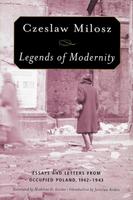Friday, September 23, 2005
Ohio impromptu, overheard, more Milosz
In the August issue of Harper's, Mark Crispin Miller weighs in on the 2004 electoral shenanigans in Ohio. His piece is essentially a report on a report--that is, Representative John Conyers's "Preserving Democracy: What Went Wrong in Ohio," released on January 5 of this year and greeted with a skeptical yawn by the media. Even most Democrats, reluctant to be branded sore losers, kept their mouths shut. Yet the investigation, which "reviewed thousands of complaints of fraud, malfeasance, or incompetence surrounding the election in Ohio, and further thousands of complaints that poured in by phone and email as word of the inquiry spread," raised some serious doubts about the legitimacy of the Ohio results. Is democracy really and truly on the march? You decide:
At a book party I attended last night, the author gracefully thanked his wife, editor, agent, mother, best friend, and (this being New York) his shrink, all of them in attendance. As the applause died down, I heard the following exchange directly behind me, which could have come straight out of The Psychopathology of Everyday Life: "So you're his psychiatrist!" "So you're his mother!"
 Finally, I was thumbing through Czeslaw Milosz's Legends of Modernity, a new collection of essays and letters he wrote during the wartime occupation of Poland. This was relatively early in Milosz's career, and although he had already produced some tremendous poetry, I wondered if his prose might still be wet behind the ears. Uh, no. Here's a bit from a letter he wrote to Jerzy Andrzejewski:
Finally, I was thumbing through Czeslaw Milosz's Legends of Modernity, a new collection of essays and letters he wrote during the wartime occupation of Poland. This was relatively early in Milosz's career, and although he had already produced some tremendous poetry, I wondered if his prose might still be wet behind the ears. Uh, no. Here's a bit from a letter he wrote to Jerzy Andrzejewski:
Ohio, like the nation, was the site of numerous statistical anomalies--so many that the number is itself statistically anomalous, since every single one of them took votes from Kerry. In Butler County the Democratic candidate for State Supreme Court took in 5,347 more votes than Kerry did. In Cuyahoga County ten Cleveland precincts "reported an incredibly high number of votes for third party candidates who have historically received only a handful of votes from these urban areas"--mystery votes that would mostly otherwise have gone to Kerry. In Franklin County, Bush received nearly 4,000 extra votes from one computer, and, in Miami County, just over 13,000 votes appeared in Bush’s column after all precincts had reported. In Perry County the number of Bush votes somehow exceeded the number of registered voters, leading to voter turnout rates as high as 124 percent.Miller does not assert that Kerry would have won a clean election in Ohio. Neither did Conyers--in fact, he more or less had to make that stipulation in order to get his report issued. Still, the dirty tricks on display are tawdry and systematic enough to make LBJ, no mean stuffer of ballot boxes, look like an amateur.
At a book party I attended last night, the author gracefully thanked his wife, editor, agent, mother, best friend, and (this being New York) his shrink, all of them in attendance. As the applause died down, I heard the following exchange directly behind me, which could have come straight out of The Psychopathology of Everyday Life: "So you're his psychiatrist!" "So you're his mother!"
 Finally, I was thumbing through Czeslaw Milosz's Legends of Modernity, a new collection of essays and letters he wrote during the wartime occupation of Poland. This was relatively early in Milosz's career, and although he had already produced some tremendous poetry, I wondered if his prose might still be wet behind the ears. Uh, no. Here's a bit from a letter he wrote to Jerzy Andrzejewski:
Finally, I was thumbing through Czeslaw Milosz's Legends of Modernity, a new collection of essays and letters he wrote during the wartime occupation of Poland. This was relatively early in Milosz's career, and although he had already produced some tremendous poetry, I wondered if his prose might still be wet behind the ears. Uh, no. Here's a bit from a letter he wrote to Jerzy Andrzejewski:In the course of this third year of war I have often thought of writing a new "confessions of a child of the age," such as Musset wrote over a century ago--a confession that would exceed, in its violence and scream of pain, that Romantic era's settling of accounts of the conscience. I assume that I would not lack for reasons to complain and hurl curses against the world. This is what I would like my future reader to see and comprehend: my first memories of childhood, those long rows of refugees' wagons on the crowded roads, the bellowing of cattle being prodded along, the red glow of the fires of 1914, revolutionary October in Russia and again the year 1920 on the battlefields, and then growing up in the blind, unconscious lucidum intervallum between the wars, the university in which blind, unconscious people lectured about some by-products of knowledge acquired in the junkyard of the nineteenth century.Whew! And that's only the first three sentences. Not sure whether Milosz ever followed through on this specific proposal--but he covered it all, and then some, over the next five decades.
